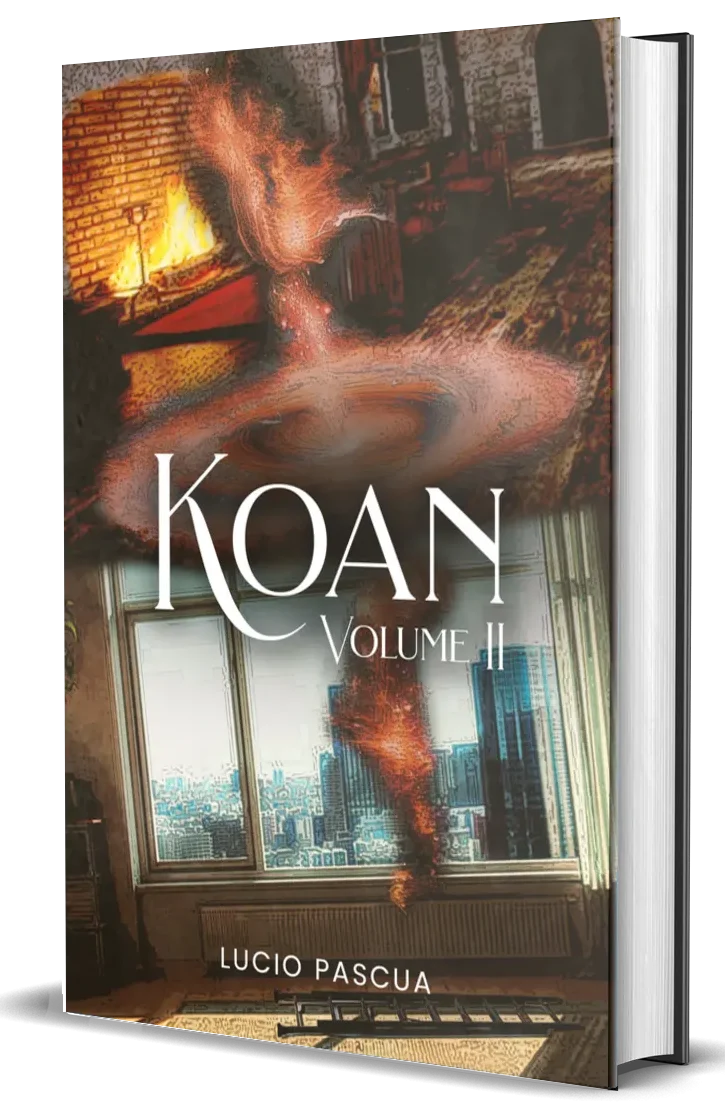You might have read many stories, but Lucio Pascua’s KOAN is not a book you finish in one sitting or easily forget. It is a story that unfolds slowly, asking you to pause, reflect, and truly think about what it means to find balance in an uncertain world. Combining elements of literary fiction, fantasy, and philosophy, Pascua creates a universe that feels both vast and deeply personal. At its center lies a timeless question: how do we live with peace and purpose when the world itself seems divided between light and darkness?

The universe of KOAN is filled with mythic depth. Its Guardians, including the Northern Tortoise and the Eastern Dragon, are not simply mystical creatures but symbols of wisdom, endurance, and harmony. They represent the natural balance that holds the cosmos together. Through them, Pascua explores the delicate tension between chaos and order. Each of these beings embodies values that feel universal, yet the way they interact makes the story fresh and unpredictable.
El-Javaz, one of the book’s central figures, is a leader who refuses to rule through violence. His belief in peace is not portrayed as naïve or effortless. Instead, Pascua shows that true nonviolence requires courage and resilience. El-Javaz’s struggle to lead through compassion rather than fear becomes one of the most striking themes in the novel. His decisions often place him in conflict with others who see war as inevitable, and his persistence reminds us that peace is never passive.
Opposite him stands Hel, a character shaped by centuries of pain. Hel’s darkness is not portrayed as pure evil but as the result of inherited suffering and unresolved anger. His cruelty forces readers to confront uncomfortable truths about the cycles of harm that exist in both real and imagined worlds. Pascua does not excuse his behavior, but he humanizes it, reminding us that darkness often begins as woundedness.
The strength of KOAN lies in its ability to connect the cosmic with the intimate. While the story spans realms and universes, its themes always return to human experience. Pascua’s writing encourages readers to look inward, to question how their own actions contribute to harmony or imbalance. The novel is not about heroes and villains as much as it is about people—how they struggle, learn, and transform.
Pascua’s prose is clear and thoughtful. He takes his time, allowing scenes to breathe and ideas to develop naturally. Instead of rushing toward grand revelations, he lets meaning emerge slowly. This pacing might surprise readers used to fast-moving stories, but it serves a purpose. KOAN mirrors the rhythm of reflection, encouraging us to slow down and absorb rather than race to conclusions.
The imagery throughout the book is vivid yet grounded. Candles, rivers, and songs recur throughout the story, reminding us that even in a world of gods and galaxies, beauty often resides in small and ordinary moments. Pascua uses these details to tie his universe to ours, showing that wisdom is found not only in the stars but also in the simple rituals that connect us.
By the end, KOAN leaves you with more questions than answers, but that is what makes it memorable. Pascua does not hand readers a message; he offers them a mirror. This is a story that lingers long after the final page, inviting quiet reflection. Thoughtful, humane, and filled with insight, KOAN is a reminder that peace is not something we find once, but something we must choose every day.
Head to Amazon to purchase your copy of KOAN.
Koan: Volume l (The Koan Saga Book 1): https://www.amazon.com/dp/B0FHDQN2C1.
Koan: Volume ll (The Koan Saga Book 2): https://www.amazon.com/dp/B0FSTJG21M.
KOAN by Lucio Pascua is a thought-provoking blend of literary fiction, philosophical fantasy, and magical realism that invites readers into a universe where myth, science, and spirit intertwine. Set in a world guided by celestial Guardians—the Northern Tortoise, Eastern Dragon, and others—the novel explores the delicate balance between chaos and order, destiny and choice, light and shadow. Through its layered narrative, KOAN follows characters like El-Javaz, a leader devoted to peace in a divided kingdom, and Hel, a figure shaped by generations of darkness, to examine how belief, morality, and transformation shape the human experience. Rich in symbolism and allegory, the story unfolds like a meditative journey, encouraging readers to pause, reflect, and look inward. At once imaginative and deeply philosophical, KOAN is not just a tale of cosmic conflict—it is a mirror held up to our own world, asking us to rethink power, purpose, and the nature of enlightenment itself.